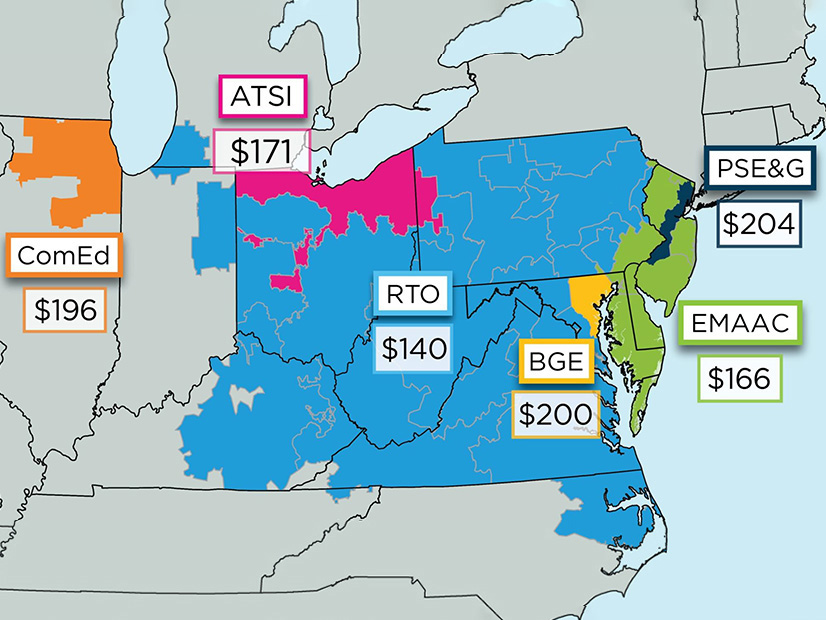
An attorney for Vistra (NYSE:VST) and other capacity sellers faced skeptical questioning from the D.C. Circuit Court of Appeals last week in a bid to overturn FERC’s September 2021 ruling changing PJM’s offer cap rules.
Vistra and attorneys for FERC, PJM and its Independent Market Monitor presented arguments to Judges Judith W. Rogers, Patricia Millett and J. Michelle Childs during a 70-minute hearing Nov. 8 (21-1214).
In March 2021, the commission ordered PJM to revise its market seller offer cap (MSOC) in response to a complaint by the Monitor, which said the original cap was too high because it erroneously assumed the RTO would annually experience 30 performance assessment hours — emergency hours when capacity sellers face penalties for underperforming. (See FERC Backs PJM IMM on Market Power Claim.)
Six months later, the commission replaced PJM’s single default offer cap with several default caps applicable to different generation technologies (EL19-47). PJM and capacity sellers sought rehearing, with the RTO arguing that the commission’s decision could lead to over-mitigation of the market. (See PJM Requests Rehearing of MSOC Change.)
Vistra said the prior rules allowed sellers to include opportunity costs in their offers, even if the offer is above the seller’s avoidable costs.
In its brief to the D.C. Circuit, Vistra said that FERC could have corrected the MSOC by changing the assumed emergency hours to 20 hours or less.
“Instead of fixing the miscalibrated assumption … FERC abandoned an opportunity cost-based offer cap altogether, without explanation or even acknowledgment, in favor of an offer cap based solely on a flawed calculation of projected operating costs,” it said.
Under the new rules, Vistra said, the commission gave “precedence to the Market Monitor’s alternative version of the supplier’s offer and requires the supplier to make a filing with FERC to challenge the Market Monitor’s version of the supplier’s offer.” Vistra said that violates capacity sellers’ rights under Federal Power Act Section 205 to file rates and terms for services rendered.
Rogers challenged Vistra attorney Paul Hughes’ argument that the commission failed to adequately explain its ruling.
“I think some of the statements in your brief are a little misleading,” she said. “I mean, it’s fine if you don’t agree [with FERC’s conclusion] if you give us reasons. But that’s different from saying FERC never responded, or never addressed the alternatives, when clearly — when you read its order and order on rehearing — it did.”
PJM attorney Paul M. Flynn argued that FERC’s ruling upset the balance between consumers and market sellers.
“We want to make sure that there is no exercise of market power, but where there is a real legitimate cost a supplier has, we want to make sure they have reasonable opportunity to include that in their capacity price,” he said. “FERC overshot. It went dramatically away from the Capacity Performance construct.”
FERC attorney Matthew Estes said Vistra was erroneously contending “the commission has given the Market Monitor the ability to set the offer cap.”
“That’s not correct. The tariff gives the suppliers the ability in the first place to propose an offer cap based on the formula. The Market Monitor simply reviews that offer to see if it complies with the tariff. And ultimately, if the supplier disagrees with what the Market Monitor determines, it can go to the commission and ask the commission to decide what cap complies with the tariff.”
In such a dispute, said Jeffrey W. Mayes, general counsel for IMM Monitoring Analytics, “we would bear the burden of proof to show that the offer was unjust and unreasonable — that it was not competitive.”



